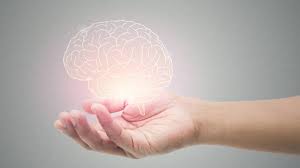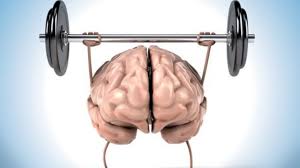
Effective Ways to Boost Memory Through Walking
How Walking Can Boost Memory
Want to boost your memory? Discover how taking a walk can significantly improve your brain function and enhance mental clarity. Whether it’s a brisk stroll in the park or a leisurely walk around the block, adding this simple activity to your routine can give your memory the boost it needs. Walking not only helps to clear your mind but also improves overall cognitive function, making it a fantastic way to sharpen your memory every day. Start walking today and experience the positive impact on your brain and memory!

When it comes to enhancing memory, the solution might be simpler than you think—putting one foot in front of the other! That’s right, walking, our most basic form of exercise, is not just good for the body; it’s a sneaky way to sharpen your mind. So, lace up those sneakers, because we’re about to stroll through the many ways walking can give your brain a serious boost.
Overview of How Walking Can Boost Your Memory

Walking can have a profound impact on memory and cognitive function. Here’s how:
- Increases Blood Flow to the Brain: Walking stimulates circulation, increasing the flow of oxygen and nutrients to the brain. This helps nourish brain cells and supports their function, which is crucial for memory and overall cognitive health.
- Reduces Stress and Anxiety: Physical activity, including walking, lowers levels of cortisol, the stress hormone. By reducing stress and anxiety, walking can help improve mental clarity and memory, as high stress levels are known to impair cognitive function.
- Enhances Neurogenesis: Regular walking promotes the growth of new brain cells, particularly in the hippocampus, a region of the brain associated with memory and learning. This process, known as neurogenesis, helps improve memory and cognitive function over time.
- Boosts Mood and Mental Well-Being: Walking releases endorphins, which are natural mood enhancers. A positive mood can enhance cognitive functions, including memory, by creating a more conducive environment for learning and information retention.
- Improves Sleep Quality: Engaging in regular physical activity like walking can lead to better sleep quality. Good sleep is crucial for memory consolidation, which is the process of forming and storing memories.
- Encourages Mindfulness: Walking, especially in nature, provides a break from the usual routine and allows for mental relaxation. This mindfulness can help improve focus and memory by reducing mental clutter and allowing the brain to process information more effectively.
Why Walking is Better Than Sitting Still
Picture this: You’re on a peaceful walk; the rhythm of your footsteps is like music to your brain. This steady pace is no accident. It turns out that walking increases the flow of blood to the brain, delivering oxygen and nutrients that help neurons (those brain cells that do all the hard work) to grow and thrive. It’s like watering a plant—only, in this case, your memory is the one blooming.
Ever had one of those “aha” moments while out on a walk? It’s not just coincidence. Studies have shown that walking, especially in nature, can improve creative thinking and problem-solving. This is partly because walking reduces stress, which in turn allows your brain to process and retain information more effectively. So, the next time you’re trying to remember where you left your keys, try taking a quick walk—it might just jog your memory!
Memory Lane is Actually a Walking Path
Want to remember that grocery list or ace that upcoming exam? Take a walk before hitting the books. Research suggests that regular walking enhances both short-term and long-term memory. It’s like giving your brain a gentle nudge to remember those little details that always seem to slip away. Plus, walking before a study session helps to prime your brain, making it more receptive to new information.

An Easy Way to a Better Memory
You don’t need fancy equipment or a gym membership to benefit from this brain-boosting exercise. Walking is free, easy, and can be done almost anywhere. Even a short, brisk walk around the block can be enough to clear your mind and improve your ability to remember important details. It’s a workout for both your legs and your memory—talk about multitasking!
Ever find yourself struggling to focus in the middle of the day? Instead of reaching for that second cup of coffee, try stepping outside for a quick walk. The increased blood flow to your brain can help clear the mental fog and improve your ability to recall information. Plus, the fresh air and change of scenery might inspire some new ideas.
Making Memories, One Step at a Time
So, there you have it—walking isn’t just good for your heart, it’s a natural way to boost your memory, too. Whether you’re strolling through a park or powerwalking around your neighborhood, each step is a step toward a sharper, more resilient mind. Who knew that something as simple as walking could make such a big difference?
Now, the only thing left to do is to take that first step. Your brain (and your memory) will thank you for it!

Disclaimer: The information provided in this content is for general informational purposes only. It is not intended as medical or healthcare advice, diagnosis, or treatment. Always seek the advice of a qualified healthcare professional with any questions you may have regarding a medical condition or healthcare decisions.


It is actually a great and useful piece of information. I am glad that you just shared this helpful information with us. Please keep us up to date like this. Thanks for sharing.